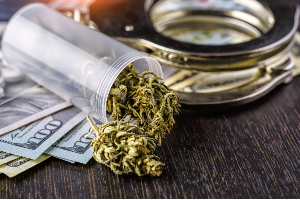 In the last decade, marijuana and its variants have become more commonly used by American citizens. While some states within America have legalized the commercial and medical possession of the drug, Texas laws continue to only allow low doses of THC for treating intractable epilepsy and other conditions under the Compassionate Use Program (CUP). For an individual to qualify for medical marijuana, they have to have a specific medical condition and be a permanent resident of Texas. The drug must also be prescribed by a CUP registered physician who can document their belief that the drug has significant benefits for the individual.
In the last decade, marijuana and its variants have become more commonly used by American citizens. While some states within America have legalized the commercial and medical possession of the drug, Texas laws continue to only allow low doses of THC for treating intractable epilepsy and other conditions under the Compassionate Use Program (CUP). For an individual to qualify for medical marijuana, they have to have a specific medical condition and be a permanent resident of Texas. The drug must also be prescribed by a CUP registered physician who can document their belief that the drug has significant benefits for the individual.
The Center for Disease Control and Prevention (CDC) found that in 2019, roughly 18% of Americans, or 48.2 million people used marijuana at least once. With increased usage among young adults, many Texas residents question whether to legalize the drug like many other states. Currently, there are serious consequences for those caught with weed. If you are arrested while in possession of marijuana, contact a criminal defense lawyer as soon as possible.
What Are the Possible Consequences for Possessing Weed in Texas?
In most cases, those with a small amount of weed on their person may just encounter a ticket instead of an arrest. However, the possible punishments depend on the amount of weed the individual has on them. Understanding the different levels of punishment can help you determine the possible consequences you may encounter.
- Two ounces or less: Charged as a misdemeanor with the possibility of up to 180 days in jail and up to a $2,000 fine.
- Four ounces or less: Charged as a misdemeanor with the possibility of up to 1 year in jail and up to a $2,000 fine.
- Up to 5 pounds: Charged as a state jail felony with the possibility of up to 2 years in jail and up to a $10,000 fine.
- Up to 50 pounds: Charged as a second-degree felony with the possibility of up to 10 years in prison and up to a $10,000 fine.
A drug possession lawyer can analyze your case and look for areas where you may encounter legal issues. With their resources and knowledge, they can offer you advice on the best course of action to take and the penalties you may encounter.
What to Do If You’re Arrested While in Possession of Weed in Texas
When you’re arrested in Texas for possession of weed, you may feel frightened and overwhelmed by the possibility of serious consequences. Your case depends on your actions and the amount of weed in your possession, so it’s vital that you follow the below tips after you’re arrested for weed.
- Stay calm: It’s challenging to overcome your anxiety and fear when you’re arrested, but it’s critical that you stay as calm as possible. Keeping a level head will reduce your likelihood of saying something that can harm your case.
- Know your rights: Under the constitution, you have the right to remain silent. You should wait until you have a legal representative by your side before you state anything. This will keep you from unknowingly harming your case and rights.
- Contact a defense attorney: Having someone on your side to make sure there are no legal complications or problems can significantly help your case. By guiding you through the legal process, they’ll have the tools necessary for a smooth and successful case.
The sooner you’re able to contact a criminal defense lawyer, the more time they have to analyze your case and gather the information they need to help develop your defense strategy.
Find a Dependable Criminal Defense Lawyer in Texas Today
Criminal defense lawyers at Sophia Martinez Law understand how frightening this situation is for Texas residents. With years of experience advocating for the rights and interests of our clients, we’ll have your back and do everything in our power to protect your rights. Sophia C. Martinez is fluent in English and Spanish and offers her services in both languages to make her clients feel comfortable communicating their concerns and needs. We want to make sure you have the best possible outcome for your case and that you have legal representation you can trust.
To learn more about how our team can help your case, call (210) 226-3000 or fill out our contact form today.
